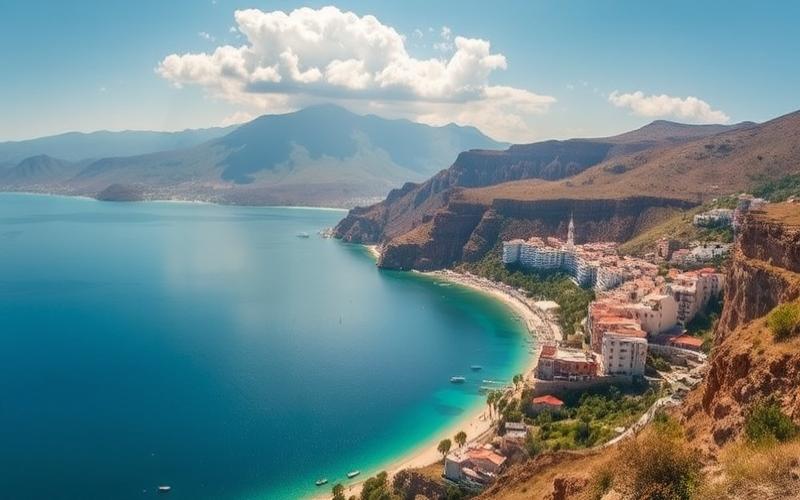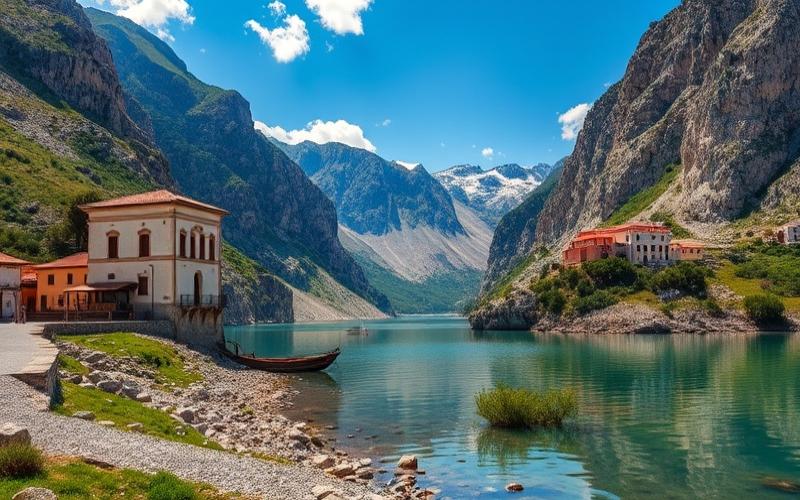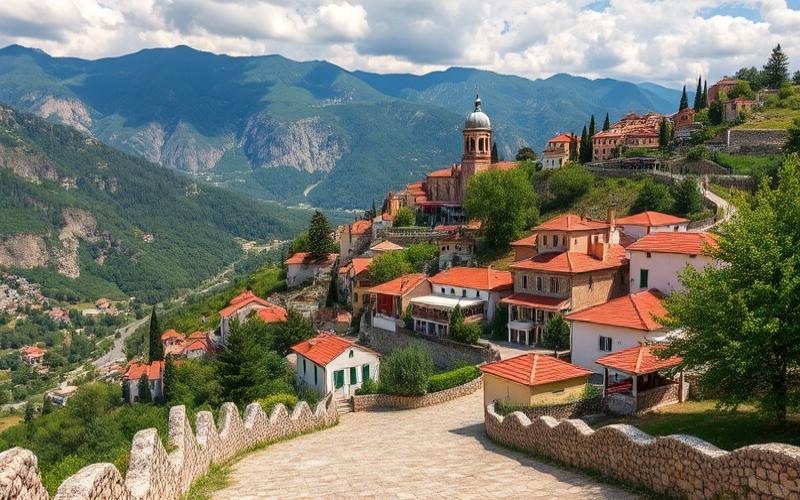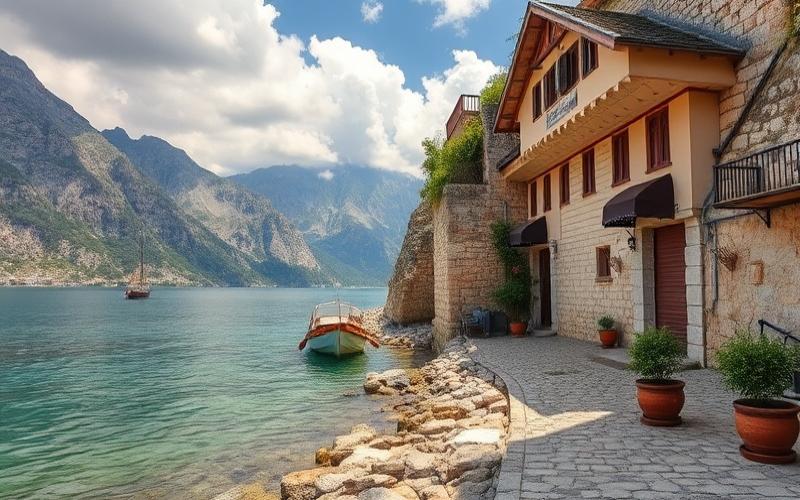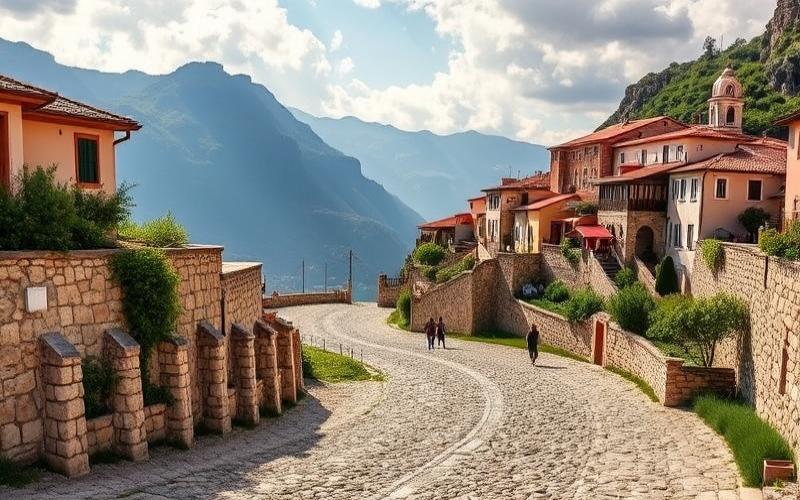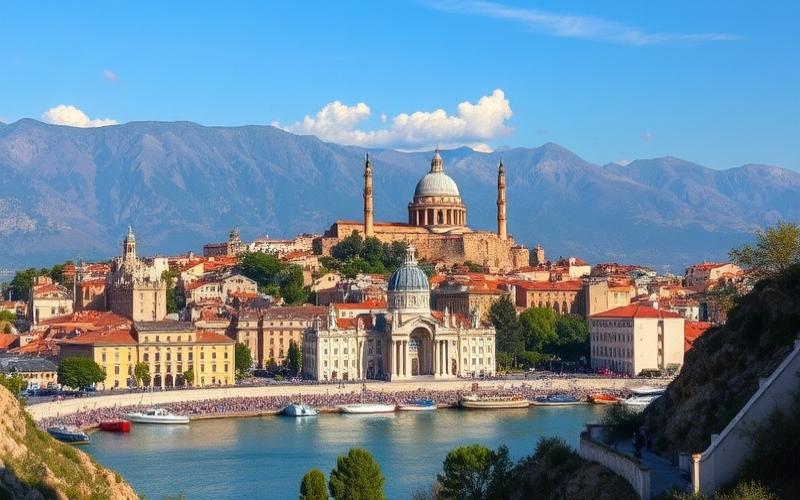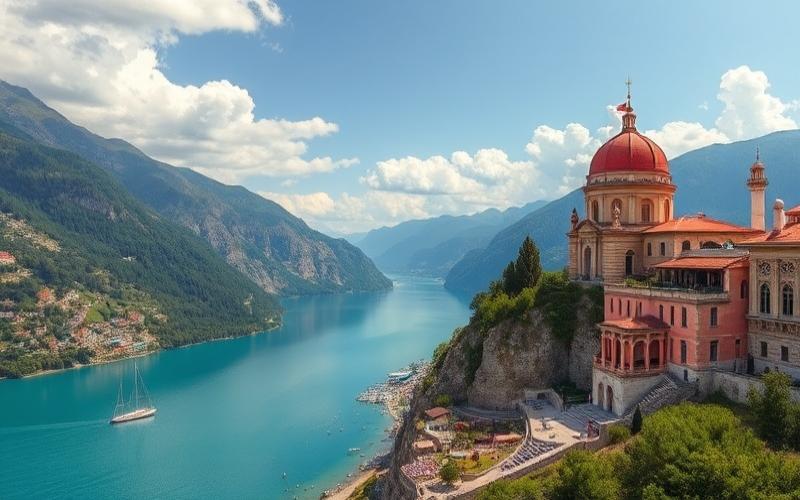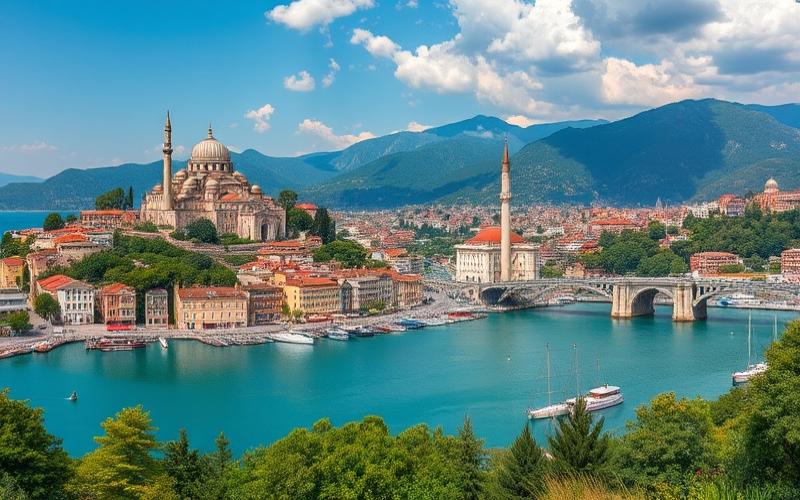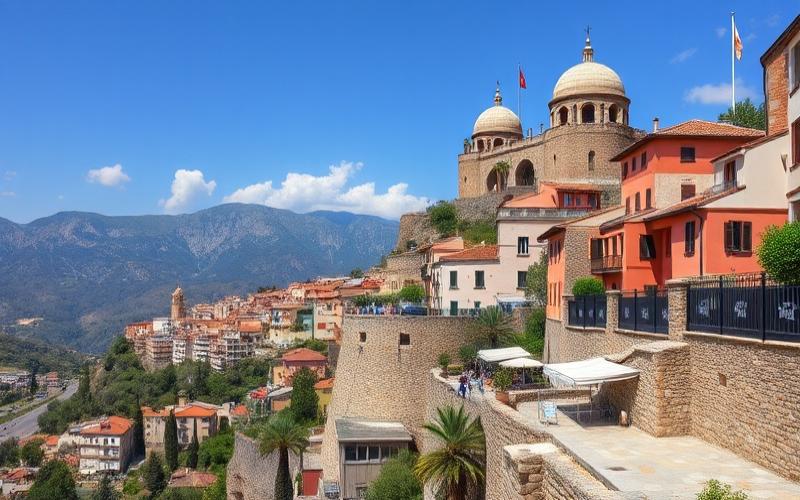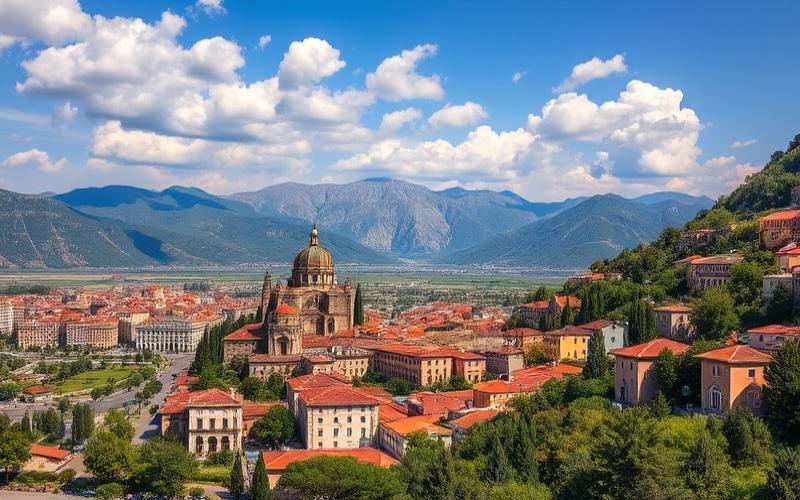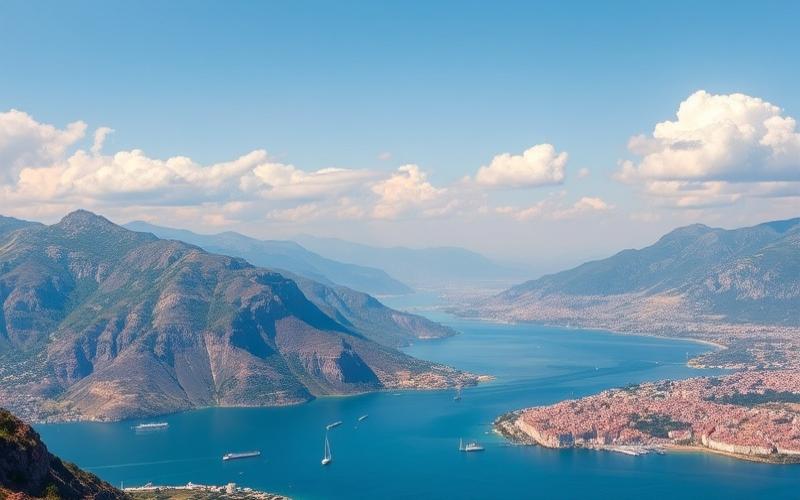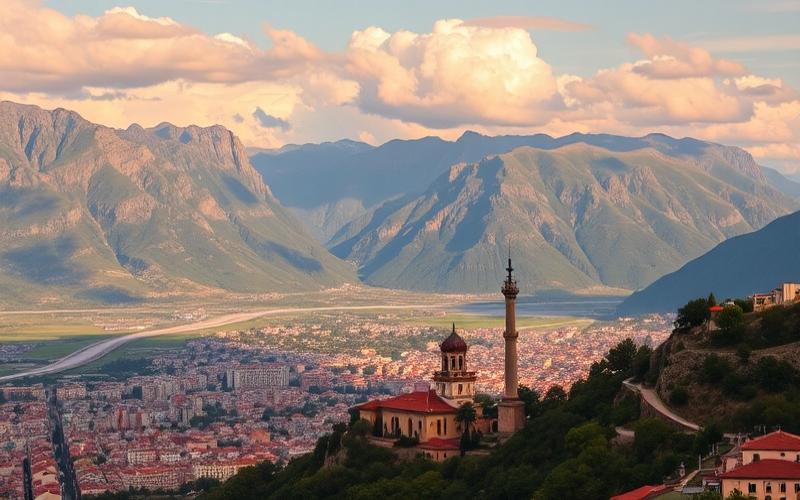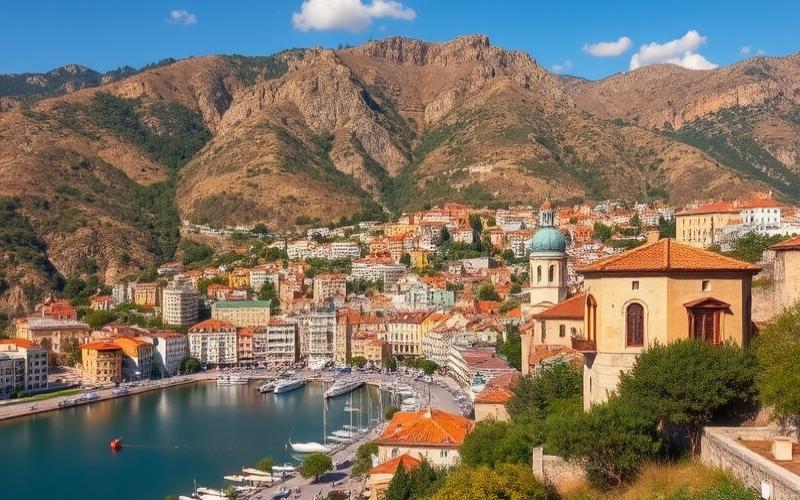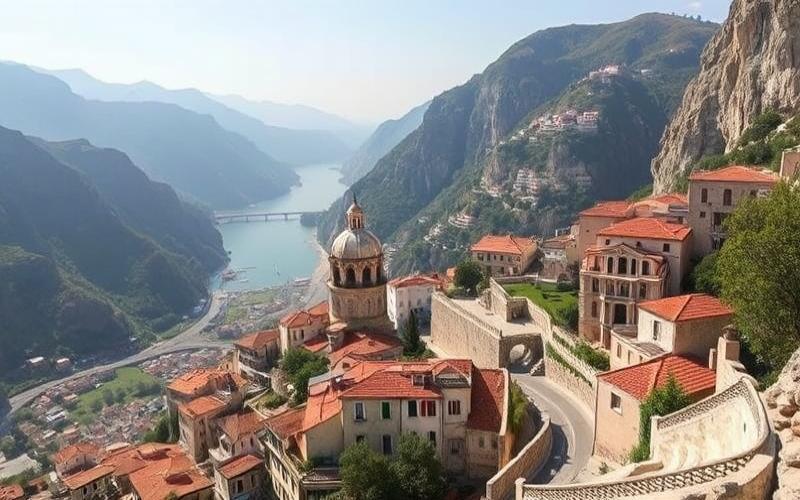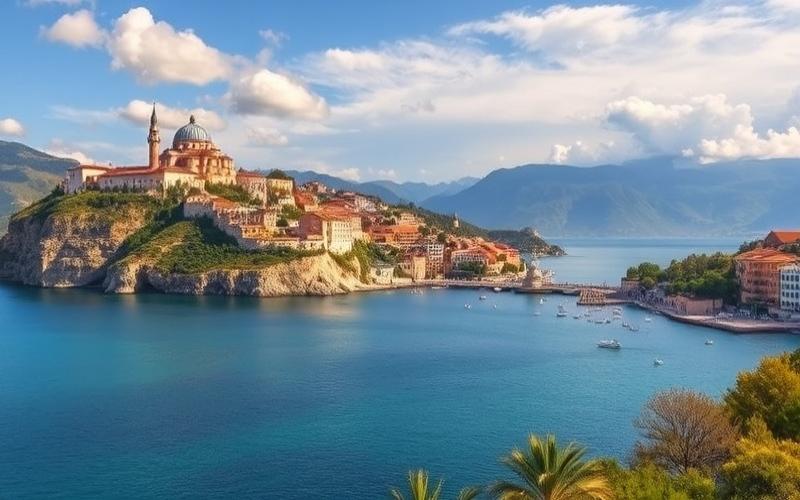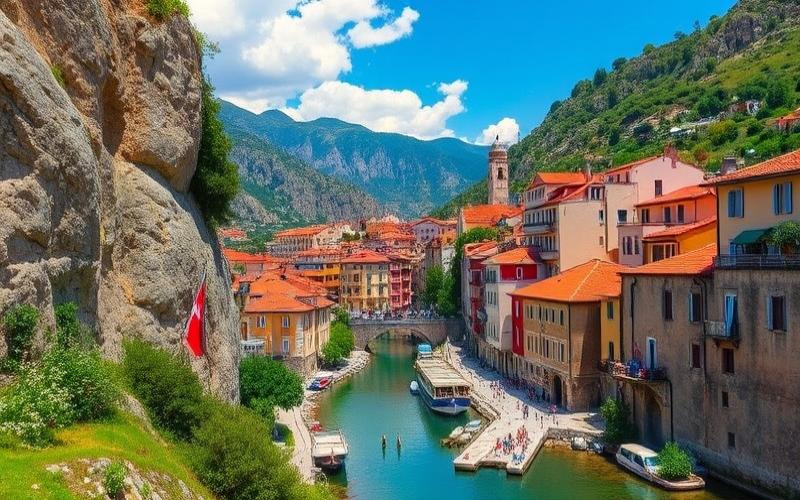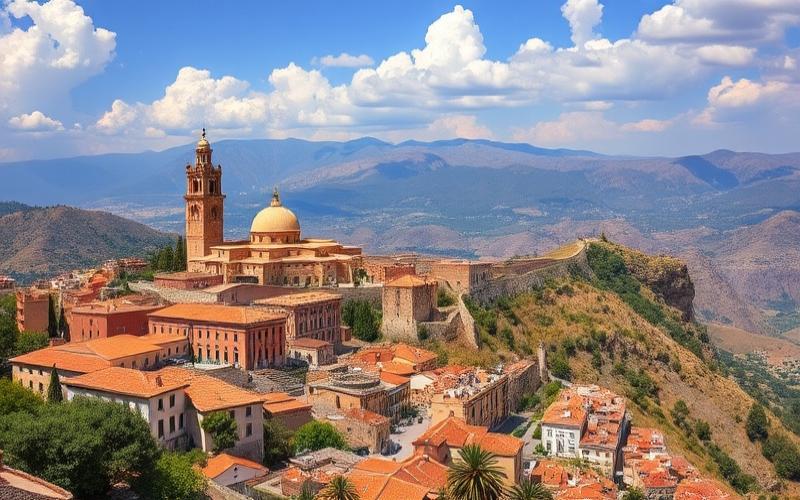
 Published on and written by Cyril Jarnias
Published on and written by Cyril Jarnias
Albania, a Balkan country undergoing rapid transformation, is attracting more and more expatriates drawn by its living environment and affordable cost of living. However, healthcare remains a crucial consideration for any relocation project. This article provides a comprehensive overview of the Albanian healthcare system and available options for expatriates.
An Evolving Healthcare System
The Albanian healthcare system has undergone significant reforms in recent years, aimed at improving care quality and access to medical services. Despite these efforts, disparities persist between urban and rural areas.
In major cities like Tirana, the capital, or Durrës, expatriates can access relatively satisfactory quality care, particularly in private clinics. These facilities often have modern equipment and medical staff trained abroad. In contrast, in rural areas, care quality can be more unpredictable and infrastructure less developed.
The Albanian government has implemented a mandatory health insurance system for all residents, including foreigners with residence permits. This system covers part of medical costs, but patients often face significant out-of-pocket expenses.
Good to know:
The Albanian healthcare system is gradually improving, but gaps persist between major cities and rural areas. Additional private insurance is highly recommended for expatriates.
Healthcare Budget: Plan Ahead for Better Care
For expatriates in Albania, it’s crucial to anticipate the budget allocated to healthcare. Although medical costs are generally lower than those in Western Europe, they can quickly accumulate in case of serious health issues.
A consultation with a general practitioner in a private clinic costs on average between 20 and 40 euros. For a specialist, expect between 40 and 80 euros. Hospitalization fees can vary considerably depending on the facility and type of procedure, ranging from 100 to 500 euros per day.
It’s important to note that many doctors and healthcare facilities require immediate cash payment. Credit cards are not always accepted, particularly in smaller facilities.
To handle these expenses, subscribing to international health insurance is highly recommended. The cost of such insurance can range between 1000 and 3000 euros per year for an adult, depending on the extent of coverage and chosen protection level.
Good to know:
Plan a substantial healthcare budget, including private insurance. Medical costs in Albania are lower than in Western Europe but can quickly accumulate in case of serious health issues.
Private Clinics: The Best Options for Expatriates
To receive the best possible care, many expatriates turn to private clinics, particularly in the capital Tirana. Here’s a list of the most reputable facilities:
- American Hospital of Tirana: Considered one of the best hospitals in the country, it offers a wide range of medical and surgical services with state-of-the-art equipment.
- Hygeia Hospital Tirana: Part of a Greek group, this hospital provides international quality care in many specialties.
- Salus Hospital: Known for its emergency services and modern intensive care units.
- German Eye Clinic: Specializing in ophthalmology, this clinic enjoys an excellent reputation among expatriates.
- ABC Clinic: Appreciated for its general medicine services and specialties like dermatology and pediatrics.
These clinics typically have English-speaking staff and sometimes other European languages, which facilitates communication for foreign patients. However, it’s advisable to check in advance which languages are spoken and to make appointments when possible.
Good to know:
Private clinics in Tirana offer care quality comparable to European standards. Always verify your insurance coverage before any treatment.
Pharmacies and Medications: What You Need to Know
Access to medications in Albania has significantly improved in recent years. In major cities, there are many well-stocked pharmacies, some open 24/7.
Most common medications are available without prescription, which may surprise expatriates accustomed to stricter regulations. However, it’s always preferable to consult a doctor before self-medicating.
For specific treatments or brand-name medications, it may be wise to check their availability before your arrival in Albania. Some medications may be marketed under different names or not available locally. In this case, it’s recommended to bring an adequate supply of your regular medications, accompanied by a prescription translated into English or Albanian.
Medication prices are generally lower than those in Western Europe but can vary from one pharmacy to another. It’s therefore advisable to compare prices, especially for long-term treatments.
Good to know:
Albanian pharmacies are well-stocked in major cities. Verify the availability of your specific medications and always keep a translated prescription.
Medical Emergencies: Be Prepared for Any Eventuality
In case of a medical emergency in Albania, it’s crucial to know how to react quickly and effectively. The national emergency number is 127, but it’s important to note that operators don’t always speak English.
For expatriates, it’s strongly recommended to have contact information for an international medical assistance service. These services, often included in expatriate health insurance, can organize medical evacuation if necessary and provide valuable language assistance.
In major cities like Tirana, the private hospitals mentioned earlier generally have well-equipped emergency services. However, in rural areas or small towns, emergency care quality can be variable.
Expatriates are advised to familiarize themselves with healthcare facilities in their region and identify the most reliable options in advance for emergencies. Always carry a card with your essential medical information (blood type, allergies, current treatments) in Albanian and English.
Good to know:
In case of emergency, call 127 or contact an international medical assistance service directly. Always carry your essential medical information translated.
Vaccination and Prevention: Protect Your Health
Although Albania doesn’t present major health risks for expatriates, certain precautions should be taken. Recommended vaccinations for a stay in Albania include boosters for diphtheria, tetanus, polio, and measles. Hepatitis A vaccination is also advised for all travelers.
For people planning to stay in rural areas or engage in outdoor activities, vaccination against hepatitis B and rabies may be considered. It’s always preferable to consult a doctor or travel medicine center before your departure for personalized advice.
In terms of prevention, it’s recommended to be vigilant about water quality, particularly in rural areas. In major cities, tap water is generally drinkable, but many expatriates prefer bottled water as a precaution.
Protection against mosquitoes is also important, especially during summer months, to prevent bites and potentially transmitted diseases.
Good to know:
Ensure your vaccinations are up to date before your departure. Be vigilant about water quality and protect yourself against mosquitoes, especially in summer.
Mental Health: An Aspect Not to Overlook
Expatriation can be an enriching experience, but it can also generate stress and adaptation difficulties. Mental health is an important aspect to consider for expatriates in Albania.
Access to mental health services has improved in recent years, particularly in Tirana. There are psychologists and psychiatrists trained abroad who can offer consultations in English and sometimes other European languages.
However, it’s important to note that the perception of mental health in Albanian society may differ from that in Western countries. The subject remains somewhat taboo, which can make finding appropriate support more difficult.
For expatriates, it can be helpful to inquire with local expatriate communities or embassies to get recommendations for mental health professionals. Some international health insurance policies also include psychological teleconsultation services, which can be an interesting option for regular follow-up.
Good to know:
Mental health services are available in Tirana, but the subject remains somewhat taboo. Inquire with the expatriate community to find a suitable professional.
Maternity and Pediatric Care: Taking Care of the Youngest
For expatriate families or those considering having a child in Albania, the quality of maternal and pediatric care is a major concern. In major cities, particularly Tirana, there are private clinics offering good quality maternity and pediatric services.
The private hospitals mentioned earlier, like American Hospital of Tirana and Hygeia Hospital, have well-equipped maternity services and qualified staff. These facilities typically offer comprehensive pregnancy monitoring, deliveries under good conditions, and postnatal care.
For pediatric care, the situation has significantly improved in recent years. There are now pediatricians trained abroad and specialized clinics in major cities. However, for complex cases or highly specialized interventions, medical evacuation to a neighboring country or Western Europe may sometimes be necessary.
It’s important to note that the Albanian vaccination schedule may slightly differ from that of your home country. It’s recommended to consult a local pediatrician to adapt your child’s vaccination program.
Good to know:
Quality maternity and pediatric services are available in major cities, but verify your insurance coverage for these specific care needs.
This information is for informational purposes only; we don’t have additional information, expertise, or network.
Disclaimer: The information provided on this website is for informational purposes only and does not constitute financial, legal, or professional advice. We encourage you to consult qualified experts before making any investment, real estate, or expatriation decisions. Although we strive to maintain up-to-date and accurate information, we do not guarantee the completeness, accuracy, or timeliness of the proposed content. As investment and expatriation involve risks, we disclaim any liability for potential losses or damages arising from the use of this site. Your use of this site confirms your acceptance of these terms and your understanding of the associated risks.

